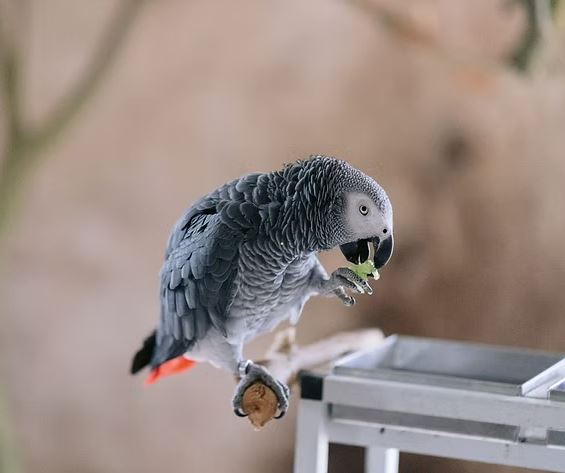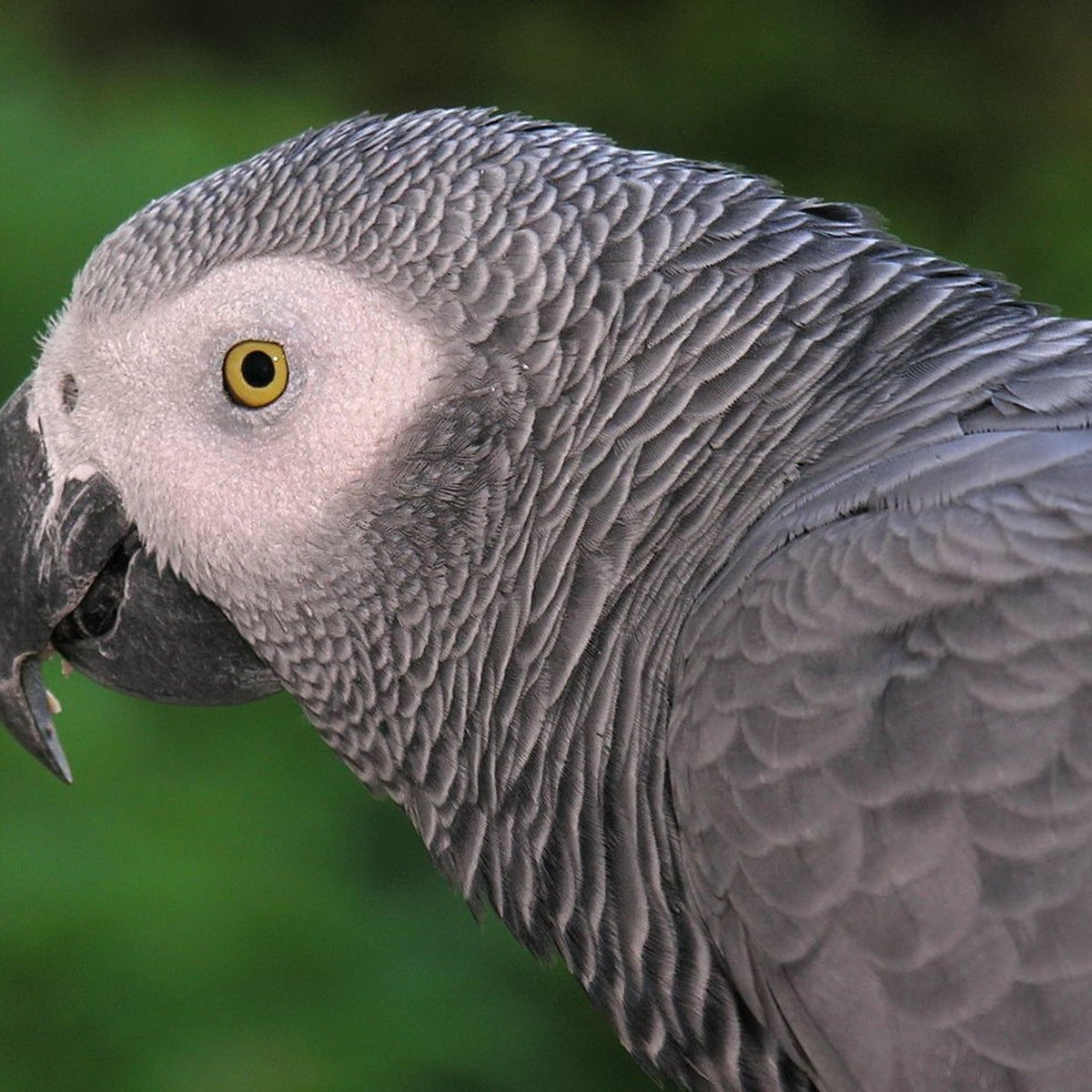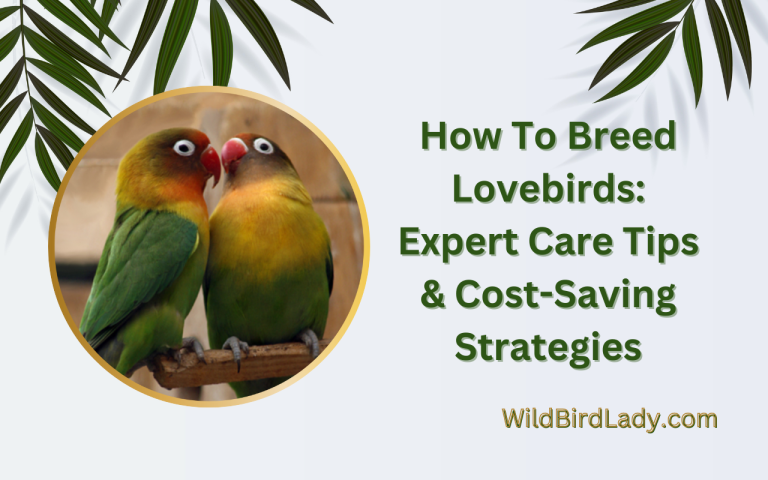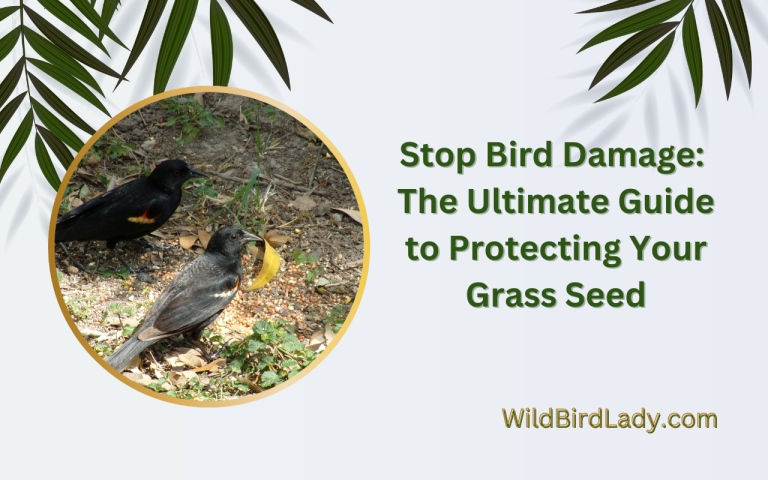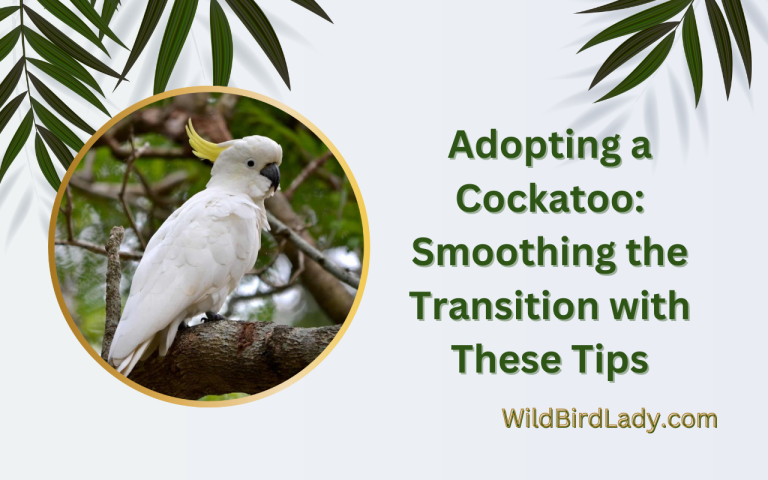How to Find a Lost African Grey Parrot: The Ultimate Guide
To find a lost african grey parrot, search in nearby trees and bushes, put up flyers, and use social media to spread the word. Now more than ever, with the use of technology and communication, there are several efficient techniques that can be used to help find a lost bird.
African grey parrots are intelligent pets and can be highly vocal, so it’s possible that they can be found by listening for their distinctive calls. However, in most cases, finding a lost parrot can be a challenging and stressful experience.
With this comprehensive guide, we’ll help you pinpoint the most effective ways to find your lost african grey parrot and ensure that it’s returned home safely.
Credit: www.independent.co.uk
Overview
African grey parrots are intelligent, social, and entertaining birds. They make lovely companions, and many owners form strong emotional bonds with their pets. Unfortunately, african grey parrots are also easy to lose. In this guide, we will cover everything you need to know about finding a lost african grey parrot.
Why African Grey Parrots Are Beloved And Easy To Lose
African grey parrots are popular pets because they are intelligent, affectionate, and have the ability to imitate human speech. They are also known for their sensitivity and emotional intelligence, which makes them excellent companions. However, their intelligence and curiosity can also get them into trouble, making them prone to escape.
Here are a few reasons why african grey parrots are easy to lose:
- They are curious birds who love to explore their surroundings.
- They are intelligent and can figure out how to open their cage or door.
- They love to fly, and if they get scared or startled, they may fly away and get lost.
The Importance Of Acting Quickly To Find A Lost Parrot
If your african grey parrot gets lost, it’s essential to act quickly. The sooner you start your search, the better your chances of finding your feathered friend. Here are a few reasons why it’s important to act quickly:
- African grey parrots are social birds and can become stressed or anxious when separated from their owners or other birds.
- They need food and water to survive, and the longer they are lost, the more at risk they are of starvation or dehydration.
- The longer your parrot is lost, the further they may wander, making them harder to find.
Factors That Affect Finding A Lost African Grey Parrot
When searching for a lost african grey parrot, there are a few factors that can affect your chances of finding your feathered friend. Here are a few things to keep in mind:
- The time of day your parrot got lost: African grey parrots are most active during the day and may be easier to spot in daylight.
- The environment in which your parrot got lost: Your parrot may be hiding in nearby trees or bushes, or they may have flown a long distance away from home.
- Your parrot’s familiarity with the surrounding area: If your parrot is used to the area where they got lost, they may have a better chance of finding their way home.
- The weather conditions: Extreme heat, cold, or rain can affect your parrot’s ability to survive while lost.
Remember that every lost african grey parrot is unique, and the search may take longer for some than others. However, with patience and persistence, you may be able to find your beloved feathered friend.
Preparing For Parrot Loss
As much as we would like to believe otherwise, accidents happen, and our beloved african grey parrots could fly away from home, never to be seen again. Luckily, there are things we can do to be prepared and increase the likelihood of recovering our lost parrots.
Here are some suggestions:
Creating A Parrot Proof Environment
- Keep the doors and windows securely shut.
- Install screens.
- Keep your parrot in a cage or playpen while you clean or perform other activities that involve opening doors or windows.
- Make sure your parrot’s toys and perches are secure, so they do not fall or cause harm.
Identification Tools: Bands, Microchips, And Leg Bands
- Leg bands are made of aluminum or stainless steel rings with breeder information and the year of birth engraved on them.
- Microchips are implanted under the skin, and they store contact information of the owner.
- Bands are made of pvc or aluminum and come in various colors, with owner information embossed on them.
- Make sure you keep the identification information up-to-date.
Parrot Flight Training And Recall Training
- Flight training involves helping your parrot become a skilled and confident flyer by gradually increasing the distance and duration of their flights.
- Recall training is teaching your parrot to return to you on command by using a whistle or a particular sound.
- Train your parrot in a safe and controlled environment, and never let them fly outside without a harness.
Losing a pet is a heart-wrenching experience, but preparing for the possibility of it happening could increase the chance of finding them. By creating a parrot-proof environment, using identification tools, and training your parrot in flight and recall, you can minimize the risk of losing your african grey parrot.
First Steps After Your Parrot Goes Missing
Your african grey parrot is more than a pet; it is a member of your family. You have taught it how to mimic your words and love to hear it say “i love you” back to you. But one day, your beloved feathered friend escapes from its cage, and now you are frantically trying to figure out what to do.
Don’t panic; we have created the ultimate guide on how to find a lost african grey parrot. This section will cover what steps to take if your parrot goes missing and how to increase the chances of finding it.
Searching The Immediate Surrounding Area
Check every nook and cranny of your home and surrounding areas. African greys are known for their intelligence and love to find small dark spaces to hide. Here is what you should do:
- Search all the rooms in your house, including cabinets, closets, and drawers.
- Check under furniture like the bed, sofa, and chairs, and behind appliances.
- Look outside, around trees, bushes, in your garage, tool sheds, and even on your rooftop.
- Use your bird’s favorite tune to whistle or call out to attract it if it’s scared and hiding.
Alerting Local Animal Rescues And Shelters
No man is an island, and you need all the help you can get in finding your missing bird. Alerting nearby animal rescues and shelters is one of the most critical steps. Follow these instructions:
- Reach out to nearby veterinarians, animal organizations, and parrot clubs and notify them about your bird’s disappearance.
- Post a “lost” flyer at the vet and their website or facebook group of the parrot club.
- Contact local animal control to see if anyone has turned in a bird matching your parrot’s description.
Using Social Media And Spreading Information
In this digital age, many people have access to social media. Use this advantage to help you find your missing bird by spreading the information. Follow these guidelines:
- Create a public facebook post with a clear and recent photo of your bird. Include a brief description and details of where and when it was last seen.
- Share your facebook post with your local pet community groups and bird lover communities.
- Create a twitter post with a photo of your bird and include a recent sighting if possible, with the relevant hashtags.
- Print out flyers and distribute them across your neighborhood, in local stores, and on car windshields.
The first steps you take after your african grey parrot goes missing are crucial. Search your immediate surroundings, alert local animal rescues and shelters, and spread the word on social media as widely as possible to help you increase the chance of finding your bird.
Stay calm, be patient, and keep hoping that your bird will return soon.
Advanced Search Techniques
Using Parrot-Specific Search Methods
When searching for a lost african grey parrot, it’s essential to use specific techniques that will appeal to the bird’s natural instincts. Below are some parrot-specific search methods that you can use:
- Play a recording of your bird’s favorite noise or sound. African grey parrots can recognize the sound of their owners’ voices and will often respond by calling back.
- Search in areas with a high concentration of bird feeders. African grey parrots are known to visit backyard feeders, and you may find your feathered friend stopping by one of these locations.
- Look for a flock of wild african grey parrots. These parrots tend to stay together and could potentially lead you to your lost bird.
Understanding Parrot Body Language And Calls
Knowing how to read the body language and calls of an african grey parrot is critical when searching for a lost bird. Here are some things to look for:
- Listen for your bird’s calls. African grey parrots can be noisy and vocalize frequently. Often, their calls will sound louder when they are looking for attention or are frightened.
- Look for body language cues such as fluffing up of feathers, a fast and erratic pace of movement, or squawking loudly. These signs often indicate that your bird is agitated or scared.
- Observe your bird’s body language when he sees you. If he becomes excited and starts flapping his wings or bobbing his head, this could be a sign that he’s happy to see you and may come to you willingly.
How To Approach And Recapture A Lost Parrot
When attempting to approach and recapture a lost parrot, it’s essential to follow these steps:
- Never run after your bird. African grey parrots are incredibly intelligent and can become frightened or stressed easily.
- Use a non-threatening tone of voice and avoid loud noises or sudden movements.
- Offer your bird some food or water to encourage him to trust you.
- Use a perch or similar item to gently persuade your bird to come to you.
- If all else fails, seek the help of a professional bird trainer or a veterinarian who can provide you with specialist advice on how to recapture a lost african grey parrot.
Remember that patience is key when trying to find a lost african grey parrot. Take your time, remain calm, and use the tips above to help you locate and recapture your beloved feathered friend.
Preventing Future Incidents
Owning a pet parrot can be a fulfilling experience, but it also comes with responsibilities. Losing a pet bird can be devastating, both emotionally and financially. Here are some tips for preventing future incidents.
The Importance Of Learning From Experiences
Learning from past experiences is critical to preventing future losses. Take the time to reflect on the events leading up to the loss of your african grey parrot. Identify any potential hazards or areas for improvement.
Tips For Better Parrot Supervision
Supervision is key when it comes to preventing parrot loss. Here are some tips to help you better supervise your pet.
- Always make sure your parrot is in its cage or on a perch when you’re not around.
- Install cameras throughout your home to keep an eye on your parrot’s activities when you’re not there.
- Train your parrot to come when called. This can be helpful if your bird accidentally escapes.
- Avoid leaving doors and windows open, especially when your parrot is out of its cage.
- Keep a close eye on your parrot when it’s outdoors. Avoid leaving it alone outside, even for a few minutes.
Strategies For A Safer Parrot Environment
Creating a safer environment for your parrot can go a long way towards preventing future incidents. Here are some strategies for making your parrot’s home safer.
- Use non-toxic plants in your home, as some plants can be harmful to parrots.
- Keep all household cleaners and chemicals out of reach of your bird.
- Cover electrical cords to prevent your bird from chewing on them.
- Avoid using non-stick cookware and appliances, as they can release harmful fumes when heated.
- Make sure your parrot’s cage is the appropriate size for its species.
By following these tips and strategies, you can better supervise your parrot and ensure its environment is safe. Doing so can help prevent future incidents and keep your african grey parrot safe and happy for years to come.
Frequently Asked Questions Of How To Find A Lost African Grey Parrot: A Comprehensive Guide
What Are The Characteristics Of An African Grey Parrot?
African grey parrots are medium-sized parrots known for their intelligence, ability to mimic sounds and speech, and their bright red tail feathers. They are social birds that require a lot of attention, interaction, and mental stimulation.
What Should I Do If My African Grey Parrot Is Lost?
If your african grey parrot is lost, start by posting flyers in your neighborhood and neighboring towns. Contact local animal shelters, bird rescues, and veterinary clinics. Use social media to spread the word, and offer a reward for the safe return of your bird.
How Can I Prevent My African Grey Parrot From Getting Lost?
Prevent your african grey parrot from getting lost by ensuring their environment is secure. Use a cage that is appropriately sized, kept clean, and designed for your bird’s needs. Train your bird to respond to recall commands, and use leg bands or microchips as identification.
How Can I Train My African Grey Parrot To Avoid Getting Lost?
Training your african grey parrot to avoid getting lost involves teaching your bird recall commands, using positive reinforcement methods, and gradually increasing the distance between you and your bird during training sessions. Consistency and patience are key to a successful training experience.
How Quickly Should I Act If My African Grey Parrot Is Lost?
Act quickly if your african grey parrot is lost. The longer you wait, the further your bird may travel, making it more difficult to find. Check nearby trees, bushes, and rooftops. Continue to search for at least a week, as african grey parrots can survive on their own for several days.
Conclusion
As pet owners, we strive to offer the best possible care and attention to our feathered friends. It can be disheartening to lose them, but there are steps we can take to recover them swiftly. Begin your search efforts immediately, employ a variety of search methods, and ensure that you inform your local community by posting flyers and on social media platforms.
Checking local animal control centers, avian veterinarians, and rescue organizations is also important. Additionally, fostering a parrot-friendly environment at home will deter your pet parrot from flying away. The bond between a parrot and its owner is special, and it is essential to make all efforts to retrieve your lost bird.
I hope this comprehensive guide has provided you with the necessary knowledge and strategies to bring your beloved african grey parrot back to its rightful place at home.
Read also: Discover the Surprising Resemblance of Birds That Look Like Sparrows

